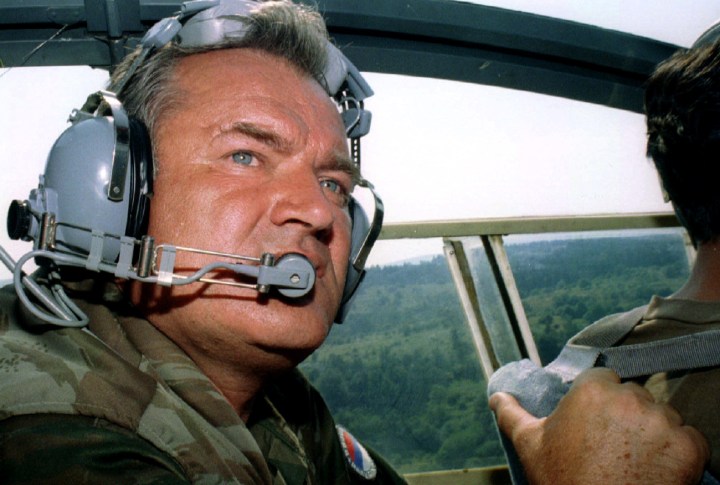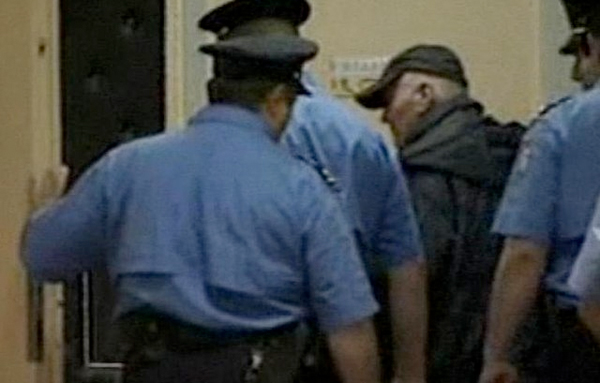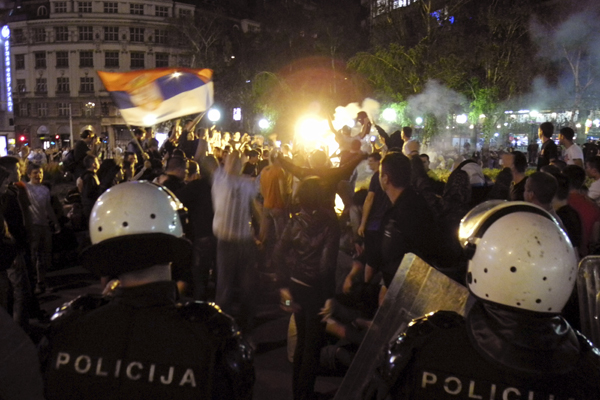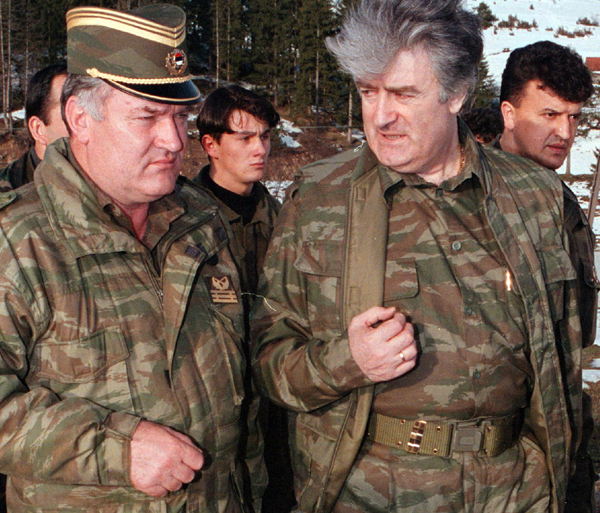Politics
Analysis: The arrest of Mladic and a possible beginning of the end of Balkan tragedy

He may have been less of a wanted man than Osama bin Laden, but badly wanted by the international community he was. Now that General Ratko Mladic is behind bars in a Belgrade court, waiting for the extradition process to The Hague to commence, what does his arrest mean for the tortured region and its long-suffering people? By BRANKO BRKIC.
The global news sphere lit up on Thursday morning SA time as a Croatian daily broke the news of Mladic’s arrest, almost 16 years after he was indicted by the International Criminal Tribunal for his role in the atrocities during the wars in the former Yugoslavia – and two years after his co-accused, Radovan Karadzic was arrested himself.
Mladic was living a quiet life under an assumed identity in the house of his cousin, in a village barely 100km from Belgrade. Although he had two pistols on him, he offered no resistance during the arrest. In a brief clip shown on Belgrade TV (see the frame grab) Mladic appeared weak and old, walked slowly and heavily into his cell. The former general is 69 years old and the years spent in hiding have drained most of his energy away, never to return.

Photo: Mladic enters his cell on 26 May 2011. (A frame grub from the TV Serbia report)
While the right-wing Serbian nationalists were threatening the nationwide demonstrations and chaos against President Boris Tadic’s government, there were no immediate signs of their threats translating into a significant action.
So who is General Ratko Mladic and why is his arrest such an important event? While it is natural to consider him a monster – and that he certainly was during the Bosnian war – to really understand why, we need to go back into the dark corners of Balkan history.
The horror of a civil war is difficult to explain to those who have never witnessed it. The families torn apart, best friendships destroyed, countless lives lost without any idea why, societies spending years on the precipice of existence. Many countries of the modern era experienced civil wars, from the US to Lebanon, and those countries still, many years later, bear the scars, some never to be fully healed. The implosion of the Soviet Union in the early ’90s brought about the break-up of the Russian buffer zone into 15 states and many regions that were often in war with themselves. But never in history was civil war so horrible, mindless and, ultimately, utterly pointless as it was in Yugoslavia’s break-up in the 1990s.

Photo: Supporters of General Ratko Mladic light torches during a protest against his arrest in Belgrade, May 26, 2011. REUTERS
And yet, as horrible as it was, that civil war was nothing new, or not even the biggest catastrophe, in these co-ordinates; the real big one, forgotten by the international community was the civil war that was happening in parallel to the World War II. So when the break-up of Yugoslavia became all but a certainty in the late ’80s, it was difficult for outside observers to understand the Serbs’ refusal to live in the country that would become today’s Croatia or Muslim majority-run Bosnia. Their fear stemmed from the four-year massacre that was perpetrated by the so-called Independent Republic of Croatia, an ally to Hitler’s Germany, from 1941 to 1945 and the ruler of Bosnia/Herzegovina too. The numbers were always to be impossible to establish, but estimates ranged from 500,000 to a million slaughtered Serb civilians. After the war, President Broz Tito, through sheer power of personal charisma, managed to heal the wounds, but the horrors were never forgotten.
General Mladic was born in 1942 near Bjeljina, Bosnia, a town that was ruled by the Independent Republic of Croatia. His father was one of Tito’s military commanders and was killed in 1945. His entire childhood and youth were marked by the horrors of the war. Growing up without a father, he followed him in choosing the career of an officer. While he was a successful military man in his own merit, Mladic was also displaying a ruthless streak that saw him become one of the most important army figures in the years that saw break-up of the country to which he’d sworn allegiance, Yugoslavia. As the country was falling apart quickly under the leadership of corrupt nationalist leaders, it became absolutely crucial to keep as much as possible of the Yugoslav army in one piece. As the officers and soldiers packed to go home and serve their new countries, Mladic rose to prominence by providing military support to the Republic of Serbian Krajina that was created by the Serbs’ enclaves in Croatia.
His next assignment was to change the course of history: He was appointed head of Sarajevo Army district early in 1992, which soon, in May 1992, became the Army of Republika Srpska, the Serbian part of Bosnia and Herzegovina. It is difficult to establish if Mladic snapped then and there, or before. But soon after he became the head of army, Mladic started the 1992-1995 blockade of Sarajevo, during which he repeatedly shelled civilian areas, cut the infrastructure and generally made life in the ancient city, (and the host of 1984 Winter Olympics) barely possible. That his moves had no discernible military logic within them appeared not to faze him.

Photo: Former Bosnian Serb wartime leader Radovan Karadzic (R) and his general Ratko Mladic talk on the central Bosnian Mt. Vlasic in this April 1995 file photo. REUTERS/ Ranko Cukovic
In July 1995, Nato’s bombing campaign finally forced him to end the siege of Sarajevo, to which Mladic responded with the biggest massacre in the post-WWII Europe, Srebrenica. More than 5,000 Bosnian Muslim men were estimated to have been killed in this dark hour of human madness. By that time even Radovan Karadzic, nominally Bosnian Serb leader, called Mladic a madman and attempted, unsuccessfully, to remove him. Even Mladic’s 23-year old daughter, Ana, committed suicide in 1994, unable to face life knowing that her father was responsible for suffering of Sarajevo.
His career ended when he was finally fired in 1996, but only after he was indicted for crimes against humanity by the International Criminal Tribunal for the former Yugoslavia in 1995. After the Dayton Accord ended the war in December 1995, Mladic turned fugitive, not exactly hiding in Milosevic’s Serbia and only really having to hide after 2002. Until now.
Why was the Yugoslavian war of the ‘90s such a hotbed of madness and complete irrationality? The answer lies with the nationalist leaders that rose to power in the Yugoslavian republics and their use of identity-based politics. Almost all of them, and especially Serbia’s Slobodan Milosevic and Croatia’s Franjo Tudjman, tied their political fortunes to the crassest of all populisms, one that identified with nationalism. Starting in 1986, Milosevic took real threats that were facing Serbian minorities in Kosovo and applied them to all Serb minorities in Yugoslavia, especially in Croatia, where they still vividly remembered the atrocities of WWII. Tudjman, from his side, promised he would defend Croatia from Milosevic’s dreams of creating “greater Serbia”. Both Milosevic and Tudjman couldn’t have existed without each other. Both went on to destroy the country, bring untold misery to their own people, misery that helped spawn war criminals like Ratko Mladic.
But the most incredible thing in the Yugoslavian war was that the enemies would eventually all become part of the one super-structure again: The break-up has created six or seven independent Balkan states (there is no international agreement on the status of Kosovo yet). Some of them are already part of the EU (Slovenia), some of them will join soon (Croatia and probably Serbia, now that Mladic has been arrested) and all others would love to be there as soon as they can. The question then begs to be asked: Why so many lives destroyed? Why so much destruction and madness? What was the point of the independence drive that cost so much? These simplest of questions will probably never be answered.
Serbia today is trying to shake off the terrible memories of the ’90s. New generations are born which do not remember the days of destruction, and to whom the years of war are only text-book material. Hundreds of thousands of Serbs are still scattered around the world, most of them never to return. The country itself, while a hotbed of Balkan entrepreneurship, is divided between the nationalists who are still smarting over the loss of Kosovo and the progressives, led by President Boris Tadic, that are looking forward to a European future. It appears Mladic’s arrest is going to give Serbia’s integration into Europe a huge boost. And with Serbia as an integral part of Europe, it is conceivable that the remainder of Balkans will follow soon, thus removing the major element of instability on the continent. Conceivable, possible, but not entirely guaranteed. DM
Read more:
- Mladic: A Chief prosecutor’s perspective, at Euronews;
- When do war criminals deserve justice? in Salon.com;
- Ratko Mladic arrested: Goran Hadzic last remaining major figure at large in The Telegraph.
Main photo: Bosnian Serb army Commander General Ratko Mladic wears head-phones while travelling in helicopter near the eastern Bosnian town of Zepa July 29, 1995. Reuters.



 Become an Insider
Become an Insider